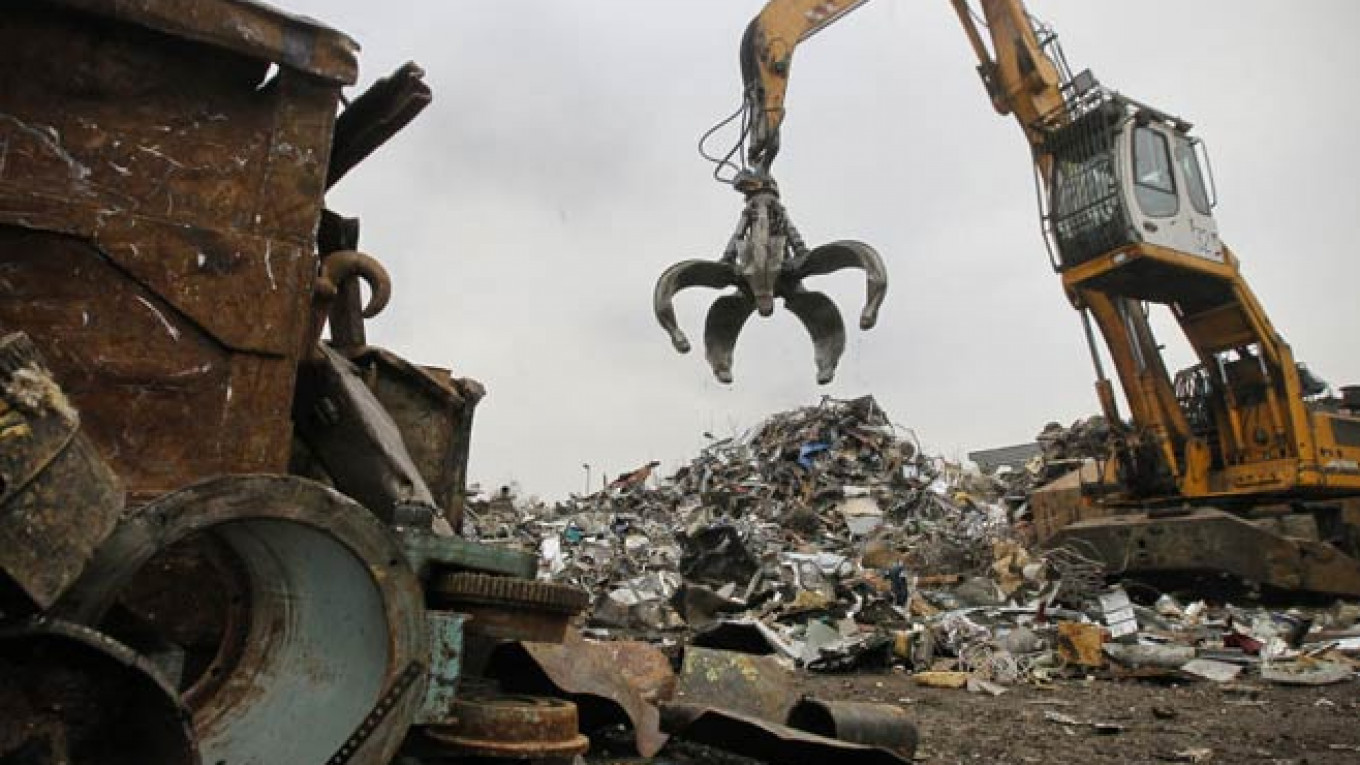A Ministry decree, in effect since March 21, may cost metals companies up to 11 billion rubles ($306 million) said Russian Steel, an association of Russian steel producers who account for 90 percent of crude steel production in Russia.
The decree bans the transport of scrap metal in railway cars unless their bottom and top are covered with wooden boards. The ministry undertook the measure in order to ensure the safety of cars and cargo. State-owned Russian Railways has defended the move as necessary, and said the measure should prevent unsecured scrap metal being stolen, Vedomosti reported Thursday.
"We have to compensate metals companies for the theft. Boarding up the train cars is the simplest method for solving this issue," a Russian Railways representative said. Russian Railways transports up to 16 million tons of scrap metal every year.
However, at least one metals company employee noted that the decision may come back to haunt the railways if companies decide it is more cost effective to switch to road transport to move their scrap metal.
According to Russian Steel, purchasing and installing the boards can cost upwards of 700 rubles ($20) per ton of metal, eating away at scrap metals' already thin margins. The average net cost of recycling scrap metal into usable steel is $400 per ton, and even a $20 increase in cost can lower profits, said a metals company employee. In 2013 the export price for one ton of scrap-based billets decreased 6.9 percent, from $540 to $503.
A Message from The Moscow Times:
Dear readers,
We are facing unprecedented challenges. Russia's Prosecutor General's Office has designated The Moscow Times as an "undesirable" organization, criminalizing our work and putting our staff at risk of prosecution. This follows our earlier unjust labeling as a "foreign agent."
These actions are direct attempts to silence independent journalism in Russia. The authorities claim our work "discredits the decisions of the Russian leadership." We see things differently: we strive to provide accurate, unbiased reporting on Russia.
We, the journalists of The Moscow Times, refuse to be silenced. But to continue our work, we need your help.
Your support, no matter how small, makes a world of difference. If you can, please support us monthly starting from just $2. It's quick to set up, and every contribution makes a significant impact.
By supporting The Moscow Times, you're defending open, independent journalism in the face of repression. Thank you for standing with us.
Remind me later.






